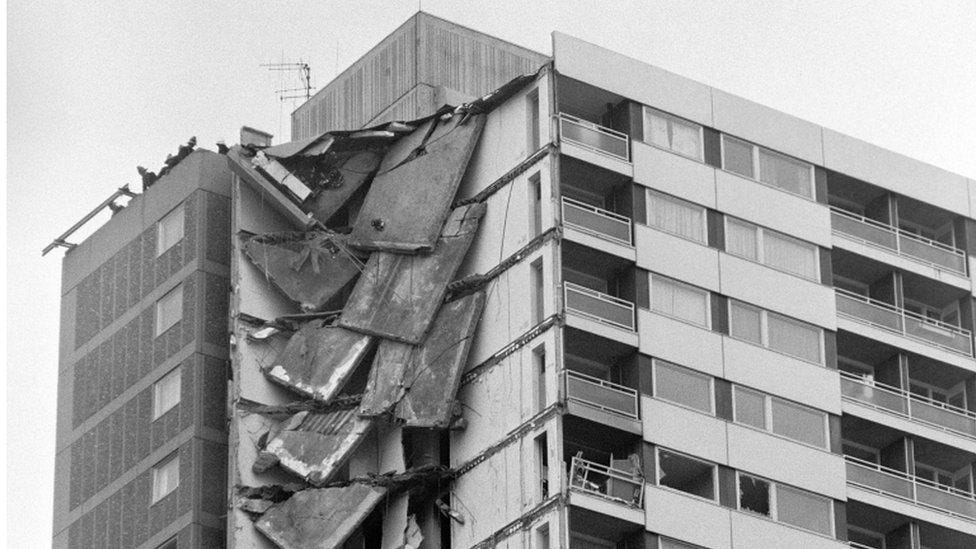Intransigence or incompetence?
Don't put off till tomorrow what you can do today. Unless you are in Government; in which case you can keep ignoring what needs to be done until it's too late.
The UK construction - and, by association, demolition - industry believes it has the ear of Government. The sector employs more than 2.5 million people and contributes an impressive seven percent (£110 billion) of the nation’s gross domestic product (GDP).
Yet, increasingly, the evidence suggests that either the sector does not have the ear of Government or that the Government is, in fact, profoundly deaf.
The industry was warning Government of potential concerns around the long-term viability of Reinforced Autoclaved Aerated Concrete for more than a decade; yet it took chunks of it to fall down in school buildings before any action was taken.
There were prior warnings over the cladding used at Grenfell Towers and many more similar buildings across the country. It took the deaths of 74 people before the Government took any action.
That same heel-dragging approach has been applied to other potential hazards such as concrete cancer, crumbling car parks and disintegrating bridges.
It would be easy to say that all Governments move slowly, not just this one. And that is correct. The incumbent Government is merely the latest in a procession of blind-leading-the-blind excuses for leadership. Rishi Sunak has merely inherited problems created and reported long before he took up residence at Number 10 Downing Street.
It would be equally easy to say that successive Governments from both sides of the house have been equally recalcitrant in their tackling of construction and civil engineering problems, preferring to wait until a potential problem becomes an actual one. That is also correct. Governments apparently prefer fire-fighting to fire prevention.
But there is a construction (and, almost certainly, demolition) related threat that has been a known issue for more than half a century. It is an issue that cause a high profile atrial collapse of a London tower block and that subsequently led to a change in the nation’s building regulations. And yet that issue – Large Panel System (LPS) buildings – continues to haunt the industry and the UK Government to this day.
According to a report in The Guardian, the Government’s Structural Stability Working Group warned Whitehall back in 2022 that “buildings that were supposed to have undergone remedial work in previous decades have not been remediated”.
The inaction of Government is apparently mirrored by similar intransigence within the construction industry. A report in December 2021 warned that the “market is not responding in the way we would wish, prioritising profit over safety”.
Concerns have simmered for decades after a gas explosion caused the partial collapse of Ronan Point in east London in 1968, killing four people.
Large panel systems were used widely in the post-war housing boom and there have been problems on many different council estates, leading to residents being moved out and buildings demolished.
In 2017 engineers were called to the Ledbury estate in Peckham, south-east London, to investigate cracks between the panels. Demolition and rebuilding was subsequently approved by Southwark council.
Residents in LPS blocks have been moved out in Portsmouth, where buildings were demolished in 2022, and in Rugby, where residents were moved out and blocks were demolished in 2021.
Estimates suggest that around 575 LPS tower blocks are still standing.
The irony in all of this is that it will likely fall to the demolition industry to ride to the rescue of a Government that is seemingly intent on side-lining demolition in favour a more sustainable solution. The same Government that has signalled its commitment to the environment by rowing back some of its greener policies in a desperate plea for votes; the same Government that demonstrated its commitment to construction by putting the kibosh on the HS2 project.
I have written a series of short stories called The Time-Travelling Demolition Man.
Each story is about a demolition worker plucked from a site in 1974 and deposited on a demolition site here in the present day, exactly 50 years later.
There are five in total; and, starting on Monday 22 January, we will be serialising them daily on Demolition Insider for our paying subscribers.
If you are a paying subscriber, you don’t need to do anything. Each chapter will arrive in your inbox automatically.
If you are currently a free subscriber who is considering switching to a paid subscription, now would be the perfect time.
I hope you enjoy reading our short story series as much as I enjoyed writing them.
The first chapter will be with you on Monday next week.





